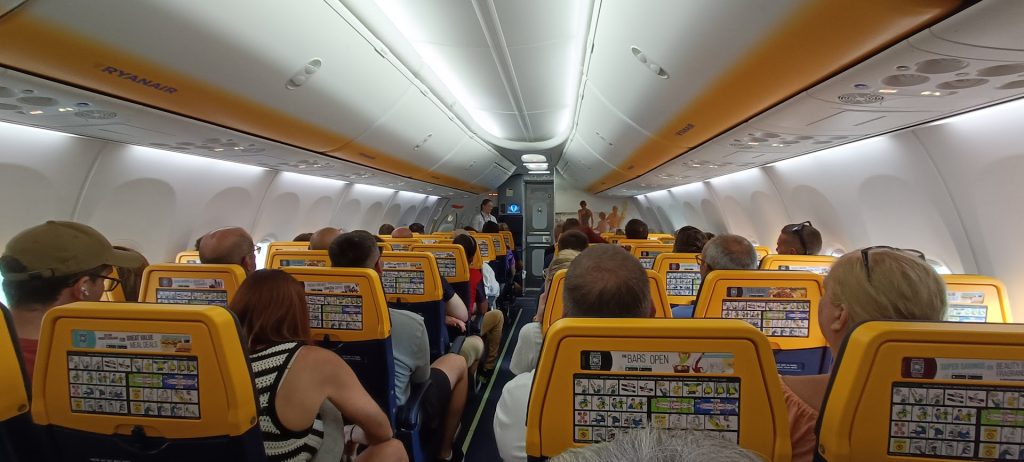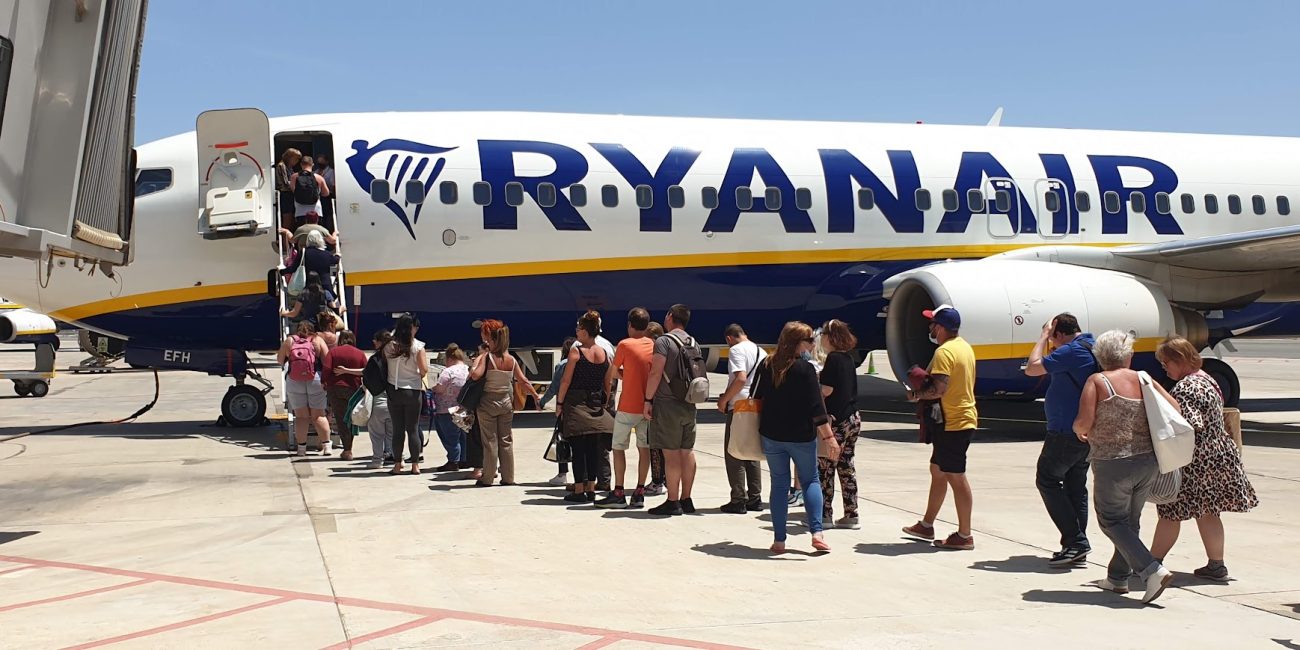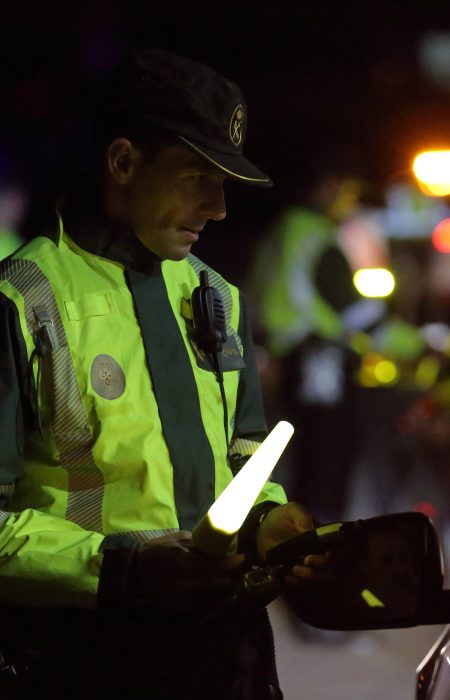Ryanair has issued a warning, imposing a straight 500 euro fine on passengers whose disruptive behaviour necessitates their removal from the flight. The policy, which was proposed yesterday, June 12th, 2025, has sparked controversy in the aerospace community, with views divided between those who perceive it as a stern and necessary response and those who fear that it will criminalise passengers without enough assurances.
Ryanair’s decision comes at a time when unruly behaviour on planes has been a recurring issue for numerous airlines. While these occurrences are in the minority, the effects can be disproportionately severe: diverted flights, delays, stress amongst passengers and crew, and even threats to flight safety.
The Irish airline made this clear in its official statement: “It is unacceptable for passengers to suffer unnecessary disruption due to a passenger’s unruly behaviour.” According to its spokeswoman, this consequence is intended to establish an instant deterrent effect against behaviour that, even when isolated, jeopardises the flying experience.
What is disruptive behaviour?
Although Ryanair has not published a full list of behaviours that could result in a fine, it is known that this sanction is intended to address situations that are plainly damaging to onboard safety and health. These include incidents of verbal or physical aggressiveness, whether directed at crew members or between passengers, as well as instances in which a passenger is under the influence of alcohol or other substances, disrupting the flight’s order and flow. Also included are cases in which a passenger refuses to follow safety instructions or causes a major interruption to service, interrupting the airline’s routine operation. These activities, in addition to being irritating, might have serious legal and logistical ramifications, supporting the airline’s hard stance.
Such occurrences not only have an impact on Ryanair’s punctuality, which is one of its primary selling factors, but they also have significant legal and logistical repercussions, such as the need to reroute an aircraft or contact law enforcement on the ground.

The issue of keeping order at 10,000 metres above sea level
Maintaining order and safety is critical in a restricted and sensitive environment, like an aeroplane cabin. As a result, the flight commander has the legal ability to compel a passenger to disembark if he or she believes their actions could jeopardise safety.
The imposition of this fine creates a number of legal and ethical issues: How does the application of the sanction ensure objectivity? Would it be possible to appeal or review? How does European regulation influence this new practice?
According to Regulation (EC) No. 261/2004 on passenger rights, airlines have the authority to refuse to carry a passenger for valid safety concerns. However, the application of an instant pecuniary penalty is not specifically stated in this rule, which may result in a legal loophole or future legal issues.
Effective deterrence or a path to fresh conflicts?
From an operational standpoint, the measure aims to protect all passengers, the majority of whom prefer a tranquil flight. The fine reinforces the airline’s current disciplinary system. However, some experts caution that it may result in counterproductive reactions, such as passengers who, in the event of a quarrel, fear financial punishment and neglect to report actual instances of risk or harassment.
Other airline industry observers argue that this consequence should be codified in a standardised and public system, akin to the no-fly lists that some airlines employ in partnership with airport authorities.
Can this policy be applied to other airlines?
Although Ryanair was the first to formalise such a fine in 2025, other European and American airlines have expressed interest in adopting similar policies. The International Air Transport Association (IATA) has cautioned in several reports that the frequency of instances involving disruptive passengers has risen in recent years, particularly during the pandemic.
The truth is that the post-COVID climate has resulted in increased social tensions, including in aeroplane cabins. The financial penalty could signal a shift in how airlines handle indiscipline on board.
Ryanair’s move pushes us to reconsider the boundaries of acceptable behaviour in public areas, particularly in highly regulated spaces, such as aeroplanes. Are we facing a zero-tolerance policy to maintain social harmony? Does this punitive action have the potential for abuse?
Aviation is one of the few fields in which power must be exercised without reservation. However, authority must be supported with transparency, responsibility, and, most importantly, balance.









No Comment! Be the first one.